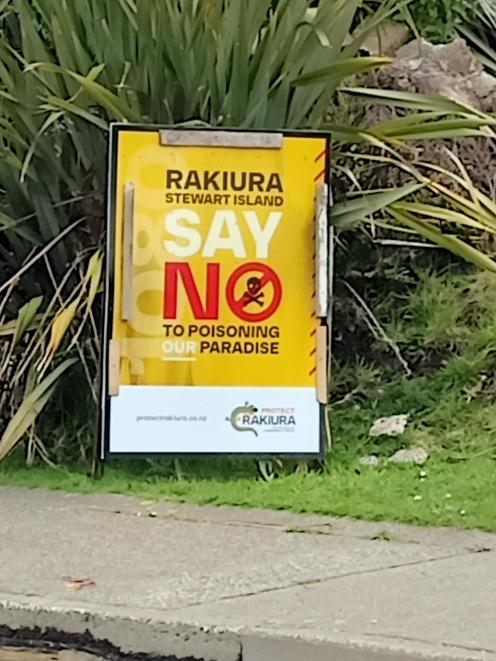
The drop, which is expected to be completed by the weekend, will cover 40,000ha, and is part of a desperate bid to pull the southern New Zealand dotterel/pukunui from the brink of extinction.
The native bird now numbers just 105 and lives only on Stewart Island.
Department of Conservation national predator control programme operations lead Colin Bishop said 1080 was the best tool to get rid of pests and keep the tiny bird alive.
"It’s pretty exciting. We’re finally at a point where we’re controlling predators to protect the pukunui, the southern New Zealand dotterel - that’s what this whole operation is about."
The bait drop aimed to diminish the island’s rat and wild cat population that was preying on the island’s native birds.
From his experience of working in the predator control programme, he believed it was the best tool available to control predators threatening other species, Mr Bishop said.
"We’re really lucky to have it. Without it we would be losing so much."
He expected the operation would also benefit other species on the island such as bellbirds and tui.
"This operation is going to reduce those pest numbers down to really low levels and give all of those species a chance to have one or two really good breeding seasons where they’ll get a whole lot of chicks away. It’s going to be a real shot in the arm for the native species on the island."
Rats ate the poison-laced cereal pellets, and feral cats died from secondary poisoning after eating the rats.
"Possums - it’ll take them years to recover because they’re quite slow breeding."
The drop site would continue to be monitored as it was still unclear how long it would take for the area to be reinvaded.
Deer repellent had been used in the designated hunting block to mitigate the impact on the island’s unique white-tailed deer population. The bait itself was generally not palatable to deer, he said.

Protect Rakiura Trust chairwoman Furhana Ahmad said any concerns raised about the operations were just ignored.
"The way that they’re [Doc] operating is that they’re brushing all the concerns under the carpet so that the public aren’t aware of what’s really happening out here. People, I can promise you, are extremely anxious today," she said.
Concerns raised by the group included dumping of highly toxic bait dropped across land and waterways, which would kill an unacceptable level of native wildlife. Hunters would not be able to consume game meat for eight months and it would have a massive hit on tourism and all island activities.
All baseline data would be lost and the dotterel breeding site would be covered in toxins.
The toxin would get into waterways and did not dilute so she knew of plenty of people who would not eat seafood.
The drop was upsetting locals.
"The trust isn’t going away. We’re going to keep fighting this and we’re going to make it as public as we can about what’s really going on there. They’ve actually ruined our baseline data for monitoring by poisoning areas and corrupting information that we could have gleaned about our natural environment."
- additional reporting by Steve Hepburn











